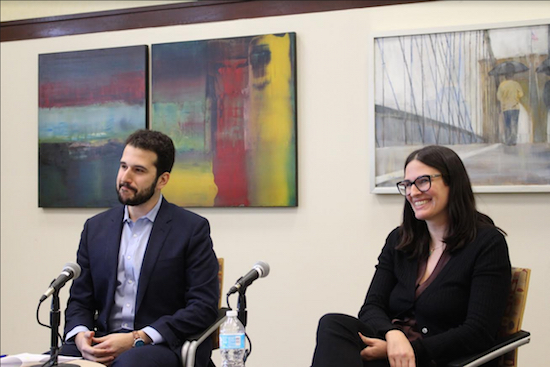Legal Lunches examines President Trump’s role in international trading

Brooklyn Law School continued its weekly Legal Lunches series where it examines presidential powers and the law, in Downtown Brooklyn on Monday with professors Julian Arato and Rebecca Kysar. This week’s discussion, which is free and open to the public, centered around President Donald Trump and international trading, tariffs and taxes.
Professor Kysar teaches federal income tax law, international tax and federal budget and tax legislative processes at the school. Arato’s area of expertise includes international economic law, public international law, international organizations, contracts and private law theory.
Before getting into the discussion on what Trump can or cannot do when it comes to international trade, Arato discussed free trade, who it impacts and why it can be seen as low-hanging fruit for politicians to rail against.

Brooklyn Boro
View MoreNew York City’s most populous borough, Brooklyn, is home to nearly 2.6 million residents. If Brooklyn were an independent city it would be the fourth largest city in the United States. While Brooklyn has become the epitome of ‘cool and hip’ in recent years, for those that were born here, raised families here and improved communities over the years, Brooklyn has never been ‘uncool’.